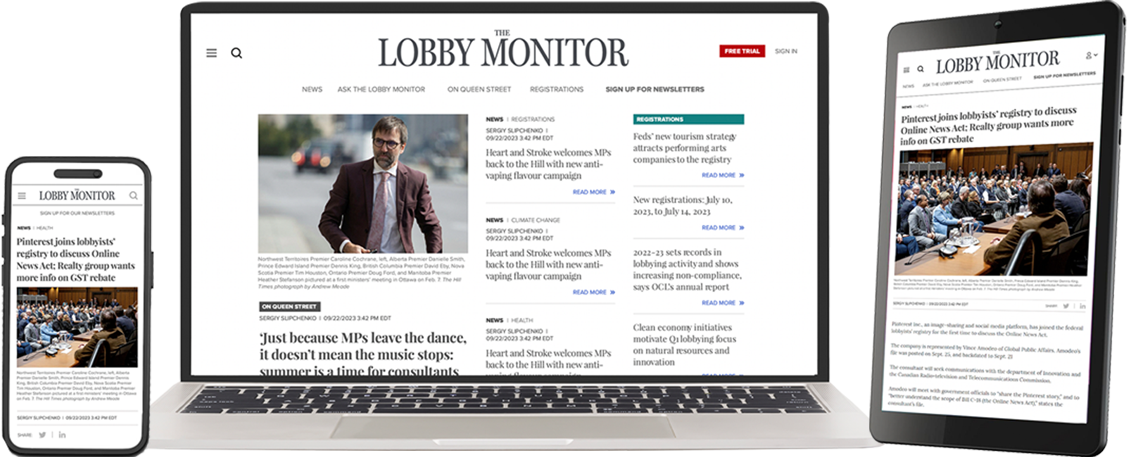Canadian Mental Health Association’s lobby day message for federal Liberals: “Act” on mental health transfer
This content is available to lobbymonitor.ca subscribers.
Already a subscriber?
Sign in here
The Lobby Monitor community is passionate, plugged-in and engaged in Canadian politics and policy.
Come inside the bubble. Take a free trial today.
Free Trial


